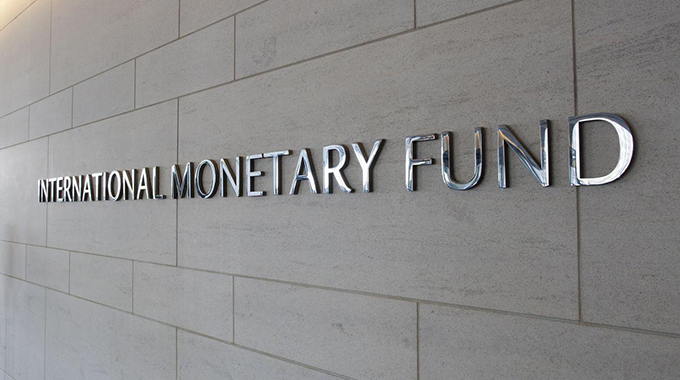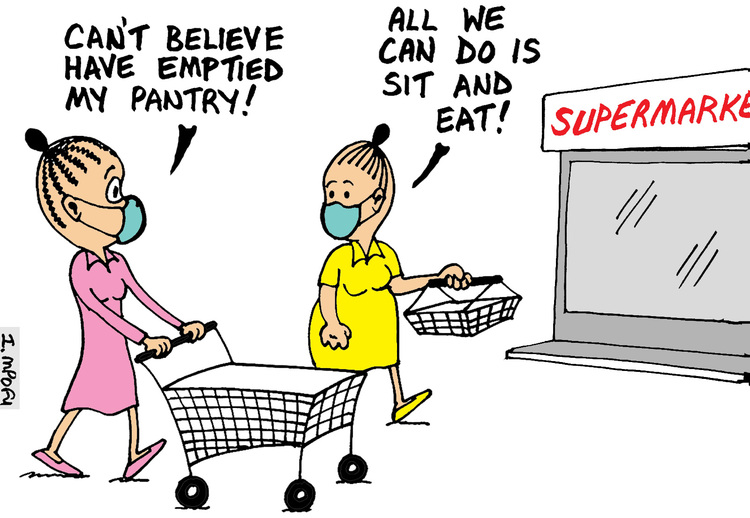EDITORIAL COMMENT: Insincerity writ large

On Monday, the executive board of the International Monetary Fund (IMF) announced a US$500 million package in grant-based debt service relief to 25 countries.
The relief is under the IMF’s revamped Catastrophe Containment and Relief Trust (CCRT) as part of the fund’s response to help address the impact of the Covid-19 pandemic.
In announcing the debt service relief, the fund said: “This provides grants to our poorest and most vulnerable members to cover their IMF debt obligations for an initial phase over the next six months and will help them channel more of their scarce financial resources towards vital emergency medical and other relief efforts.”
Countries granted debt relief are Afghanistan, Benin, Burkina Faso, Central African Republic, Chad, Comoros, Democratic Republic of Congo (DRC), The Gambia, Guinea (Conakry), Guinea (Bissau), Haiti, Liberia, Madagascar, Malawi, Mali, Mozambique, Nepal, Niger, Rwanda, Sao Tome and Principe, Sierra Leone, Solomon Islands, Tajikistan, Togo and Yemen.
A noticeable absentee from the list of beneficiaries of the debt service relief countries is Zimbabwe.
What is evident is that Zimbabwe does not have the resources to mount an effective campaign in the face of the virus.
It is precisely this realisation that led it, two weeks ago, to appeal to the United Nations (UN) and the international community for US$2,2 billion.
The three-pronged formal US$2,2 billion appeal for humanitarian aid for the next 12 months specifically targets drought relief food, agriculture, and for fighting Covid-19.
Cognisant of Zimbabwe’s requirements, the UN, led by United Nations Development Programme (UNDP) Resident Coordinator Ms Maria Ribeiro committed to fundraising US$770 million for an interim humanitarian appeal, including a special US$70 million for Covid-19.
The UN’s assistance targets 5,3 million people, a third of the country’s entire population and is for health, food security, water and sanitation, education and protection.
In respect of the US$70 million, instructively, the UNDP Resident Coordinator added that, “ . . . it is indicative of the kind of resources that are needed in Zimbabwe for the UN to support the Government in its coronavirus response.”
The Government’s own appeal cites 7,7 million people — an estimated half of the country’s population — in both rural and urban areas as requiring “urgent food assistance”.
Part of the Government’s predicament is that it is still grappling with a response to the 1 300 citizens who lost lives, had entire homes destroyed and were displaced by Cyclone Idai in March last year in Zimbabwe, Malawi and Mozambique.
Over 220 families are still displaced and require resettling as a result of Cyclone Idai.
But the 2019-20 agricultural season has proved disastrous, necessitating grain imports to ensure no one starves.
The scale of the challenge is best demonstrated by and understood in the private sector response to the call to help the Government.
The sector is coming on board because it clearly understands that this is a challenge bigger than the Government’s capacity to respond to, fulfil and address on its own. When Covid-19 is factored, the challenge for the Government becomes more daunting.
In February this year, after its Article IV Consultation with Zimbabwe, the IMF noted: “While highly uncertain at this stage, it is clear that Covid will adversely impact the economic outlook for Zimbabwe and require additional health-related spending and international support.”
It also noted that Zimbabwe remains in debt distress with large external arrears to official creditors.
Since the entry of the new Dispensation in 2017, Zimbabwe has cleared its arrears to the IMF.
However, the fund says its rules preclude lending to a country that is still in or under arrears to other international financial institutions.
Until that particular situation is resolved, it will not be moving forward with financial support for Zimbabwe.
How does one acknowledge a humanitarian crisis and debt distress but proceed to preclude Zimbabwe from the being a beneficiary of the grant-based debt service relief?
This appears a case of hypocrisy/insincerity writ large.
In contrast, the African Development Bank (AfDB) continues to support Zimbabwe even though the country is in arrears.
In January the AfDB board approved a US$685 000 grant to strengthen Zimbabwe’s capacity to manage disaster risks, including droughts, floods and tropical cyclones through the bank’s Africa Disaster Risk Financing Programme.
The bank’s country manager for Zimbabwe, Damoni Kitabire, in explaining the rationale for the support, said extreme weather events such as prolonged dry spells, droughts, floods and tropical cyclones had affected agricultural production, disrupting livelihoods in rural Zimbabwe.
The project is among many that demonstrate the Bank’s continued support to the country as the Government works to reform the economy.
Last month (March) the bank announced bold measures to support African countries in addressing challenges resulting from the Coronavirus-19, through the issuance of a US$3 billion bond designed to provide significant rapid support for African countries.
AfDB said it was deploying its full weight of emergency response support to assist Africa at this critical time, adding: “These are extraordinary times, and we must take bold and decisive actions to save and protect millions of lives in Africa. We are in a race to save lives. No country will be left behind.”
The global pandemic has revealed how developed countries — even with the best of resources — are failing or struggling to cope with the crisis.
It is disingenuous for the IMF to acknowledge the predicament that Zimbabwe is in and yet reason that Harare cannot benefit from the Catastrophe Containment and Relief Trust.
So what Zimbabwe gets are exhortations for the difficult choices it is making to clear its arrears to the international financial institutions, but when it comes to where lives are at risk, the IMF turns around and does not reward the bitter choices Harare has made. The hypocrisy is staggering.








Comments